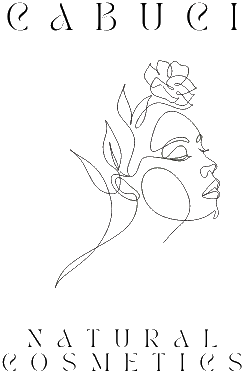The Dangers Of Non-Organic Ingredients
L ogically, there is no person who doesn’t care are the selected, tested, quality, completely healthy, and natural ingredients or harmful chemicals.The problem arises when we use what is within our reach, without much reconsideration we trust the manufacturers that they care about these issues because we don’t have time to think about that things, too. Therefore, we have no choice.
On a daily basis, we meet approximately a hundred different artificial chemicals, most of which are found in preparative products for face and body care, and in the makeup.
Fun fact: Women annually ingest through the skin between 4 to 6 kilograms of skincare products!
Approximately 25% of the ingredients used in conventional cosmetics it is associated with the development of tumors and other malignant diseases, and more than 80% of all allergic skin reactions on cosmetic preparations are caused by artificial ingredients, like preservatives, artificial colors, mineral oils and so on…
Preservatives, like some types of parabens and phenoxyethanols, can affect reproductive ability, while often using preservative PEG (polyethylene glycol), affects the appearance of skin hypersensitivity, which is also caused by ingredients such as mineral oils and paraffin.
Artificial colors and pesticides cause long-term weakening of the immune system, and silicones belong to this group too, as extremely difficult to degrade compounds in the body, although they are nevertheless very often found in cosmetic products.
Of course, everything is within the law and allowed – the use of all chemicals is legally regulated, and the doses used in cosmetics are dermatologically tested. The fact is that all cosmetic products are tested on the market for short, also legally determined deadlines. However, the question of their deposition in the body remains unresolved, due to many years of use. The results of such tests, for each product separately, are not implemented and do not exist.
Natural Cosmetics – Is It Really Natural?
In Europe, natural cosmetics are already called products with barely 5% natural ingredients. Natural cosmetics are often “natural” only in their name. The other ingredients are mostly petrochemical substances, detergents, artificial colors, preservatives, and perfumes.
In real, natural cosmetics, vegetable and essential oils are used as preservatives, propolis and natural alcohol, and appropriate manufacturing and packaging procedures are carried out, which ensure the durability of the product. Despite all that, real natural products, however, have a much shorter shelf life and can’t stand on drugstore shelves for years, which is perhaps the most obvious proof that this is a truly natural product.
The most important differences between real natural cosmetics and those who just declare themselves so, are:
- More than 70% natural ingredients, that is, a high proportion of natural active ingredients.
- Preservative-free products, such as parabens, phenoxyethanols, polyethylene glycols, etc.
- Products without artificial colors, mineral oils, silicone, paraffin, and other petroleum products.
- Products without ingredients of animal origin.
- Honesty in product presentation and communication with the user – names of all ingredients on the packaging and stating the percentage of natural ingredients in the product.
- No animal testing.
- The packaging of the product itself is environmentally friendly and as such cannot diminish product quality (as it, does not release its own harmful ingredients into the product over time, because they don’t even have it).
Organic-Based Cosmetics Against Branded Cosmetics
It is completely biodegradable
The goal of every preparative cosmetic product is not to stay on the surface of the skin, but that its ingredients are absorbed into the deeper layers and thus allow the penetration of useful ingredients, which have the purpose of achieving some effect (hydration, wrinkle reduction, etc.). That is, to fulfill their purpose, for a watch they are intended.
Natural ingredients thus enter the body, but they are always biodegradable, which means, it is easily broken down naturally in the body.
On the other side, artificial ingredients in conventional products, are harder to break down and accumulate in the body over the years. In such larger quantities, their safety for health is at stake.
Natural ingredients encourage the skin to regenerate itself
Natural ingredients in natural cosmetics work in the way to encourage the skin to regenerate itself – to produce collagen and elastin fibers on its own, prevent moisture loss, create the lipids she needs, and protect against negative external influences.
In other words, natural cosmetics as opposed to conventional ones, activates the skin’s natural metabolic processes, instead of replacing them. Therefore, there can be no “setback” effect, when a particular product ceases to be used.
No habituation or saturation of the skin
Comments from many users often heard, that their skin was accustomed to some cream and that it no longer works, although they were initially delighted with her work.
It is true that after a few months of daily use, the skin develops antibodies to artificial chemical ingredients, and they no longer work.
Natural cosmetics do not make the skin addictive and do not lead to a reduction in the intended effect.
If the right, natural cosmetics suit you, when you first time applies it to the skin, you can use them for years, and the effect will always be the same.








